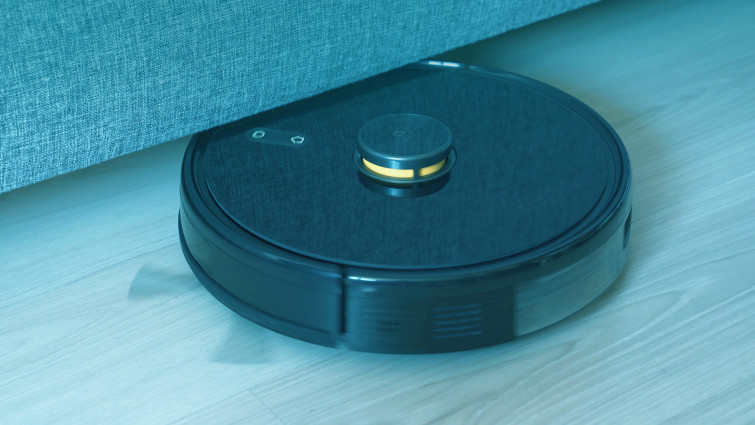Web of Issues, Privateness
With regards to privateness, it stays difficult and close to not possible for a client to make an knowledgeable resolution.
16 Aug 2023
•
,
3 min. learn

A presentation at DEF CON, 10 am on a Sunday morning in Las Vegas. My expectation was it might be poorly attended – I couldn’t have been extra flawed. A packed room greeted Dennis Giese, a famend knowledgeable in “hacking” robotic vacuum cleaners. The theme of the presentation was learn how to cease your robotic vacuum cleaner from sending information again to the seller, a dialogue primarily based on privateness and safety.
Final month my colleague Roman Cuprik published an article on WeLiveSecurity detailing how these house vacuuming gadgets could also be spying on their homeowners, so I can’t get into the weeds of the potential problems with spying right here however quite talk about the standout elements of Dennis’s excellently delivered presentation.
The researcher Dennis led had a easy objective – might they root the goal system with out disassembling it? Rooting the system in simplistic phrases means getting access to the underlying software program used to manage the system, and presumably modifying it. Within the present case, this creates an alternative to not make the system go rogue however quite for the software program to be modified so as not to share private information and to present final management again to the proprietor.
A play on phrases
I’m assuming at this level you’re both savvy sufficient to have learn Roman’s article or that you simply have a grasp on the privateness points, reminiscent of robotic vacuums with cameras sending photos again to the vendor’s cloud servers, probably figuring out all of the issues you have got in your house.
One of many points highlighted by Dennis is that vendor claims could not match actuality: for instance one firm referred to as out within the presentation claims it doesn’t ship any information again to the cloud, it by no means duplicates information, and that the cameras on its gadgets are solely there to guard objects in your house from collisions. This sounds possible, however one other characteristic listed for a similar system is you could entry the digicam remotely and watch the system working. So how do they do this if the picture or video stream isn’t shared by the corporate’s cloud servers that present the performance; possibly there may be some real wizardry concerned.
One other concern raised within the presentation was the wording utilized by corporations to explain the performance and options of the merchandise. Attributable to dangerous press in recent times referring to gadgets with cameras on them, and particularly the opportunity of abuse, some producers have seemingly eliminated cameras; their documentation as a substitute says their gadgets make the most of “optical sensors”. That is simply a play on phrases; they’re — after all — cameras and it was demonstrated within the presentation that they’re able to capturing pictures: they’re cameras.
The presentation went into extra particulars and examples that have been all simply as surprising; it additionally highlighted that lots of the gadgets examined and located to have privateness and safety points are licensed by some famend testing labs; the examples of certifying authorities given have been a revered German testing authority and, extra broadly, the European Union certification of gadgets.
Statements versus actuality
In Roman’s blogpost, he recommends conducting pre-purchase investigation of gadgets, which I totally concur with in most situations had I not listened to this presentation at DEF CON. It’s clear that whereas safety has improved within the firmware and operation of those dust-collecting gadgets, it stays difficult and close to not possible for a client to make an knowledgeable resolution.
A tool that states it shares no information to the cloud, has no onboard cameras, and carries certification for safety and privateness from extensively revered testing labs would appear to fulfill all the necessities of a privacy-conscious client; in actuality, although, what is going on underneath the hood could also be utterly completely different. The presentation was not about one producer or mannequin however listed quite a few circumstances of each. Till there may be readability, I’ll stick with pushing my handheld vacuum across the home.
One final remark – a callout to Dennis Giese for delivering such an important presentation on a Sunday morning in Vegas. However I urge you to not reveal points to a public viewers and quite comply with industry-coordinated disclosure requirements. I’m positive the robotic vacuum cleaner corporations would respect this, as would most shoppers. Nobody desires to personal a tool with a vulnerability that has no patch on account of disclosure not following {industry} finest practices.
Author:
Date: 2023-08-16 05:35:53


